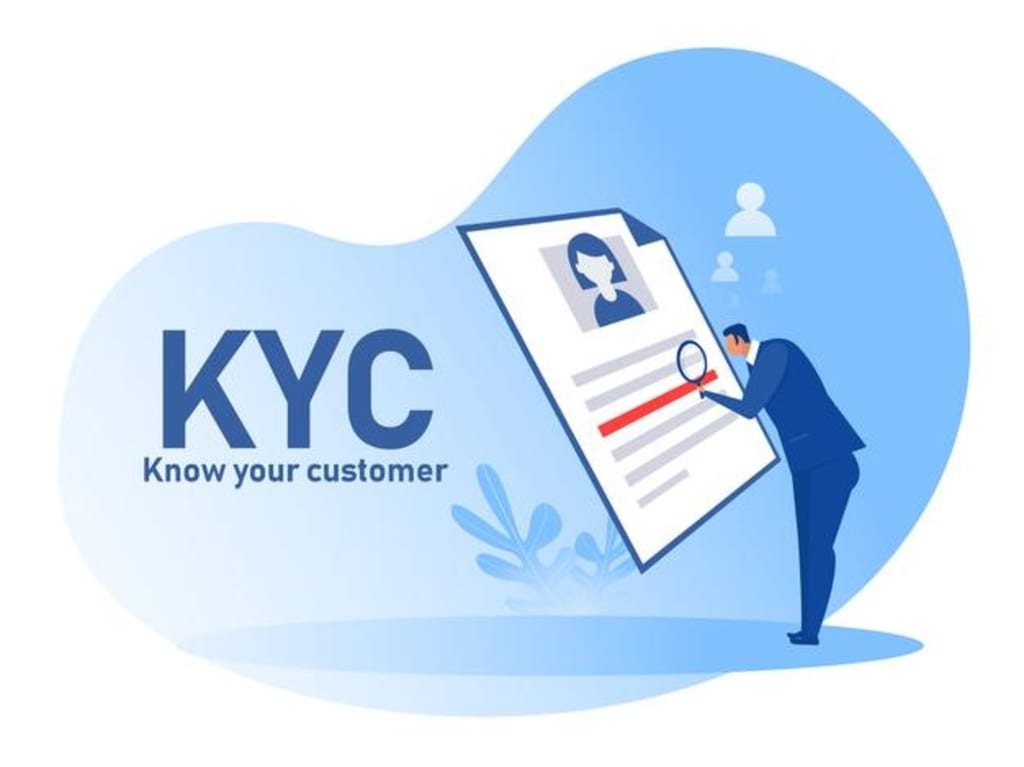What does KYC Mean & How it Paves the Way for Regulatory Compliance
KYC authentication is the procedure in which a company’s clients are recognized and authenticated. This is vital to ensure that they do not have a criminal background and are legitimate clients

When monetary institutions need to onboard legitimate users, whether a user or a partner company, it is compulsory for them to perform KYC measures. These measures come with two advantages
- Recognizes false users who have the only purpose to harm
- Combatting the business from monetary crime and complying with KYC measures that are set by regulatory authorities. Therefore, if the con artists become successful in setting up company relations by utilizing tampered IDs and or other intelligent malicious ways, the company is a major risk.
These illegitimate con-artists will then launder cash using the company website to perform further malicious activities such as identity fraud and terrorist financing. Recommendations by the FATF - the global financial regulatory authority - lists measures to combat such activities and direct companies to include KYC CDD in their user onboarding procedure.
KYC Verification - What Does it Mean?
KYC authentication is the procedure in which a company’s clients are recognized and authenticated. This is vital to ensure that they do not have a criminal background and are legitimate clients. In this procedure, legitimate government-approved client documents are submitted by the users, from which identity data is extracted and screened for authentication. Some of these documents are a driving licence, a national identity document, utility bills or any other legitimate identity document with the client’s photo on it. The KYC procedure includes a CIP also recognized as a customer identification program that gathers important information on the client’s end to start the authentication process.
The Significance of Complying with KYC Standards
When we discuss monetary institutions, there exist some regulatory duties which they must comply with. One significant obligation is to know your customer law that applies not only to the banking sector and businesses operated by a central banking authority but also to NBFIs. VASPs and insurance companies are part of the monetary market. These companies are acquired to either develop an in-house KYC/AML law program or hire a KYC service provider that performs the task for them. Listed below are some requirements for know your customer (KYC) compliance:
- Create a CIP to get client details.
- Perform user verification using their legitimate identity documents.
- Maintain risk profiles of users through a risk management approach.
- Make sure in-house compliance with anti-money laundering & know your customer laws
KYC Due Diligence - Three layers of Analysis
Company entities that are KYC- compliant take important measures to conduct due diligence of users. Usually known as KYC CDD, it is adopted to comprehend and recognize the amount of uncertainty a specific user poses to a company, which is vital to plan for comprehensive verification and screening of the user.
Simplified Due Diligence
When the user is particularly someone with less risk, SDD is the method to adopt. These KYC measures can operate without performing an extensive screening of the user through anti-money laundering background checks.
Customer Due Diligence (CDD)
CDD depends on a set of regulator measures that are adapted to authenticate the client. These types of users are generally categorized as either medium or less risk that defines the type of CDD requirements they need to comply with. Customer due diligence requirements differ with modifications in regulatory authorities.
Enhanced Due Diligence (EDD)
This sort of KYC due diligence is case-based. These are generally performed for a user who is either a politically exposed person, related with a regulatory authority, or imposes a specific degree of uncertainty to the company. EDD includes anti-money laundering screening that looks for potential fraudulent and political background against the user. Enhanced due diligence measures also involve continuous monitoring of the users, which implies that the information will be examined against monetary crime parameters every time they conduct huge payments.
Key Takeaways
Presently, companies are at the stake of monetary fraud each day. A robust KYC solution enables companies to digitize the KYC procedure by giving them an intelligent mechanism for authentication. The digitized KYC system comes with the adoption of document authentication and face verification that makes the user identification and verification smooth.






Comments
There are no comments for this story
Be the first to respond and start the conversation.